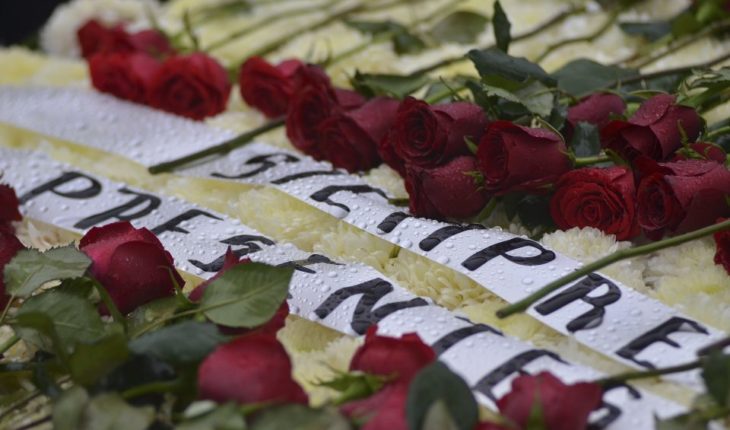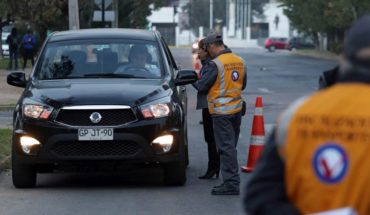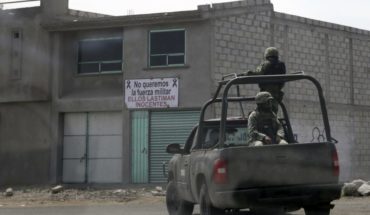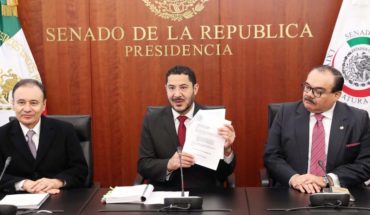A federal judge concluded that the Executive Commission on Victim Care (CEAV) violated the constitutional rights of 16 people affected by the September 2008 grenade attacks in Morelia, Michoacán, after they had been requesting access to a victim support fund for a year and a half years ago, without even receiving a response so far.
In granting a class action for protection in her favour, Judge Ana Luisa Priego Enriquez warned that, in accordance with the General Law on Victims, CEAV had a maximum period of 20 days to integrate and resolve the file related to the request for access to the fund. However, more than 18 months have passed without this happening.
“(CEAV) has violated the complaining party’s right of access to justice by not taking the proceedings promptly and expeditiously confirming to legal time limits (…) this ominous act has prevented them from effectively accessing the measures established by the legislation whose purpose is to guarantee the rights of the victims”, notes the judgment of the judge, of which Animal Político has a copy.
The victims affected by CEAV omissions are 16 in total, among those relatives of people who lost their lives (including children who were orphaned) and others who were seriously injured, such as the loss of some part of the body.
This as a result of the grenade detonations that alleged organized crime members carried out during the festivities of the Cry of Independence in the Base of Morelia, on September 15, 2008.
On 29 June 2018, those affected applied to CEAV for registration with the National Victims Register in order, in turn, to access the victims’ funds that the law envisages as a right.
In accordance with Articles 146 and 148 of the General Law on Victims when such applications are received, the Interdisciplinary Evaluation Committee of the CEAV has a period of 4 days to integrate the initial dossier and a maximum of 20 days to complete its formation and issue a resolution. But none of it happened.
For this reason the victims decided to promote through their legal representatives a class action for protection that last October arrived at the Thirteenth Court in Administrative Matters, and which resulted in the aforementioned sentence that was notified to the victims this week.
Read: 11 years after the grenade attack in Morelia, there is no justice or reparation of the damage
According to the decision of Judge Priego Enriquez, CEAV’s omissions represent a violation of article 17 of the Constitution that establishes the right to prompt and expeditious justice for Mexicans.
“In addition, the principle of due diligence governing the application of the General Victims Act contains a special requirement in this regard that the authorities must take all the necessary steps and actions to ensure the right of access to justice in strict compliance with the rules governing it, among which, of course, it is the full compliance with the deadlines for issuing the decisions of the procedures provided for in the legislation, which has not happened here” adds the Sentence.
Here’s the sentence:
A commission that re-victimizes
According to the decision of the protection judge, CEAV now has a maximum period of ten days to resolve the 16 victims’ request to access the aid fund.
However, lawyer Reyna Velasco – the victims’ legal representative – does not rule out the Commission’s decision to appeal against the sentence, which could further delay victims’ access to some support.
“What is a fact is that today all these victims of such a serious event are not receiving any support from CEAV. With this resolution what must happen is that the Commission already registers them in the register of victims, recognizes them as such and gives them access to the fund. However, I don’t think it will happen because it has already happened in other matters that file review appeals to not comply,” she said.
Velasco said that it is “ironic” that when the General Law on Victims was created it was established in the explanatory statement that there were cases without due attention or support such as that of the victims of grenades in Michoacán, which made it necessary to create a legal framework and a system to deal with it. But that’s just what hasn’t happened in that same case.
Find out: PGR offers 1.5 mdp for three suspected Morelia bombing perpetrators in 2008
The problem, the lawyer explains, is systematic. It has become a bad habit that victims of many cases have to resort to legal bodies to try to get CEAV to do its job, as it is omistated even to respond to less complex requests.
“It also happens that when you issue resolutions you do not do so attached to the right and you have to go for amparo trials to reverse them. I believe that in this respect the Commission is leaving the victims in helplessness or worse, re-victimising them. Far from being the Commission that supports the executioner, he said.
Political Animal published since October 2018 that CEAV suffered from multiple problems, from staff cuts and budgets, to the resignation of most of its commissioners and poor organization. It was warned that it was common for victims to have to litigate against the commission itself to get support.
According to the victim lawyers consulted by this means, this crisis has not changed and has even deepened. Just this week, there was one last case with relatives of the children killed at ABC Nursery, who complained on social media about the Commission’s inattention.
Find out: Jaime Rochin’s period at CEAV: no attention to victims of trafficking or damage reparation
Granadazo unpunished
The grenade attack on the base of Morelia, Michoacán in September 2008, was officially described by the authorities as an act of “terrorism”. It was an unprecedented violence in Mexico that left eight people dead and more than a hundred injured.
But more than eleven years after the attack and despite its seriousness, the case is in complete impunity.
Last year, a federal court definitively determined the acquittal of the four persons to which the Office of the Attorney General of the Republic (PGR) wished to hold accountable for the attack. It was determined that the alleged culprits were tortured to “confess”, and that there was no valid legal evidence to attribute the fact to them.
This situation means that those who are true responsible for these acts remain at large, while the truth of what has happened is not known. Therefore, there are also no convicts who repair the damage caused and, if that were not enough, the State has also resisted doing so, as evidenced by ceav’s omissions confirmed by the federal judge.
What we do in Animal Político requires professional journalists, teamwork, dialogue with readers and something very important: independence. You can help us keep going. Be part of the team.
Subscribe to Animal Politician, receive benefits and support free journalism.#YoSoyAnimal





